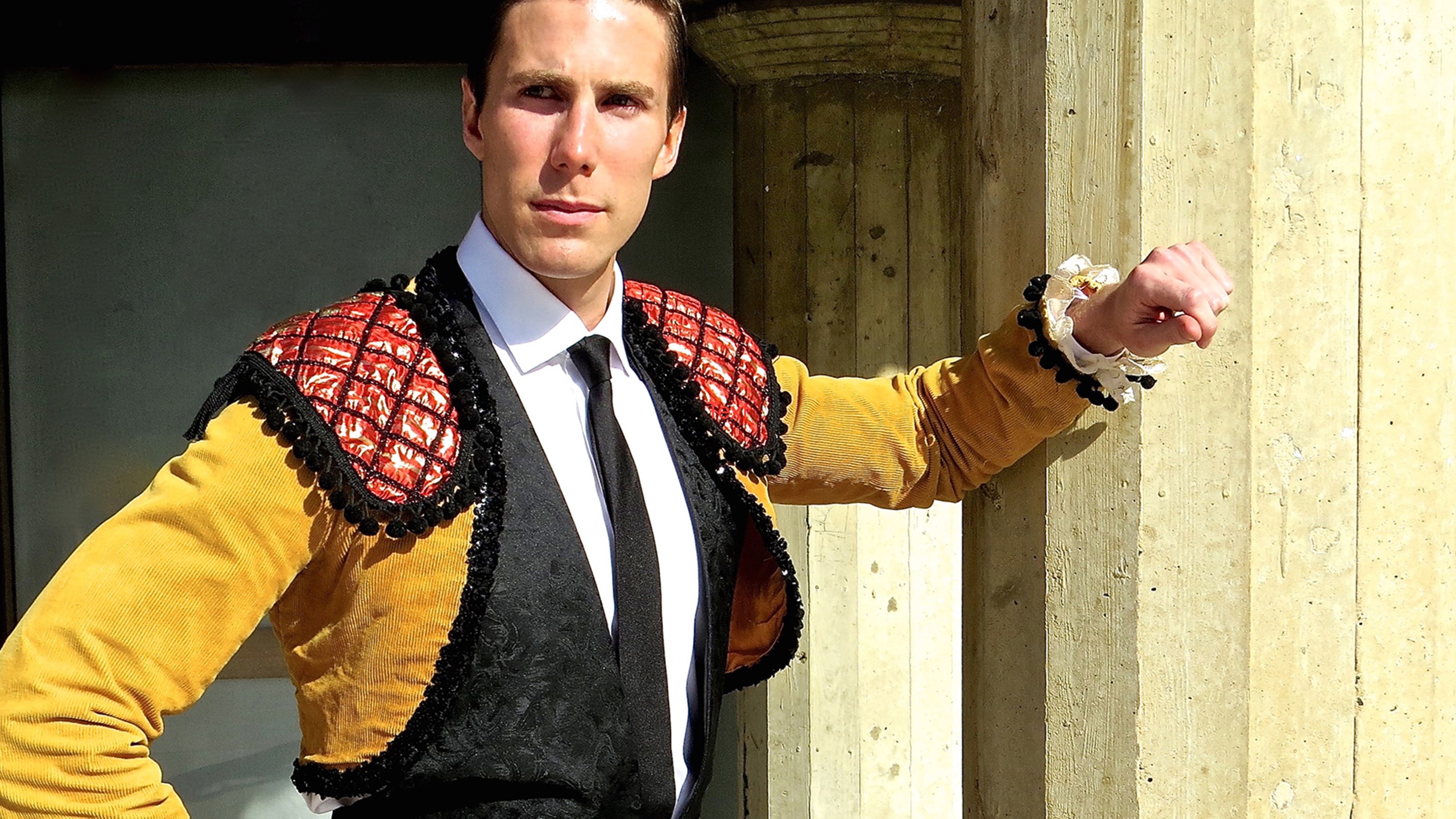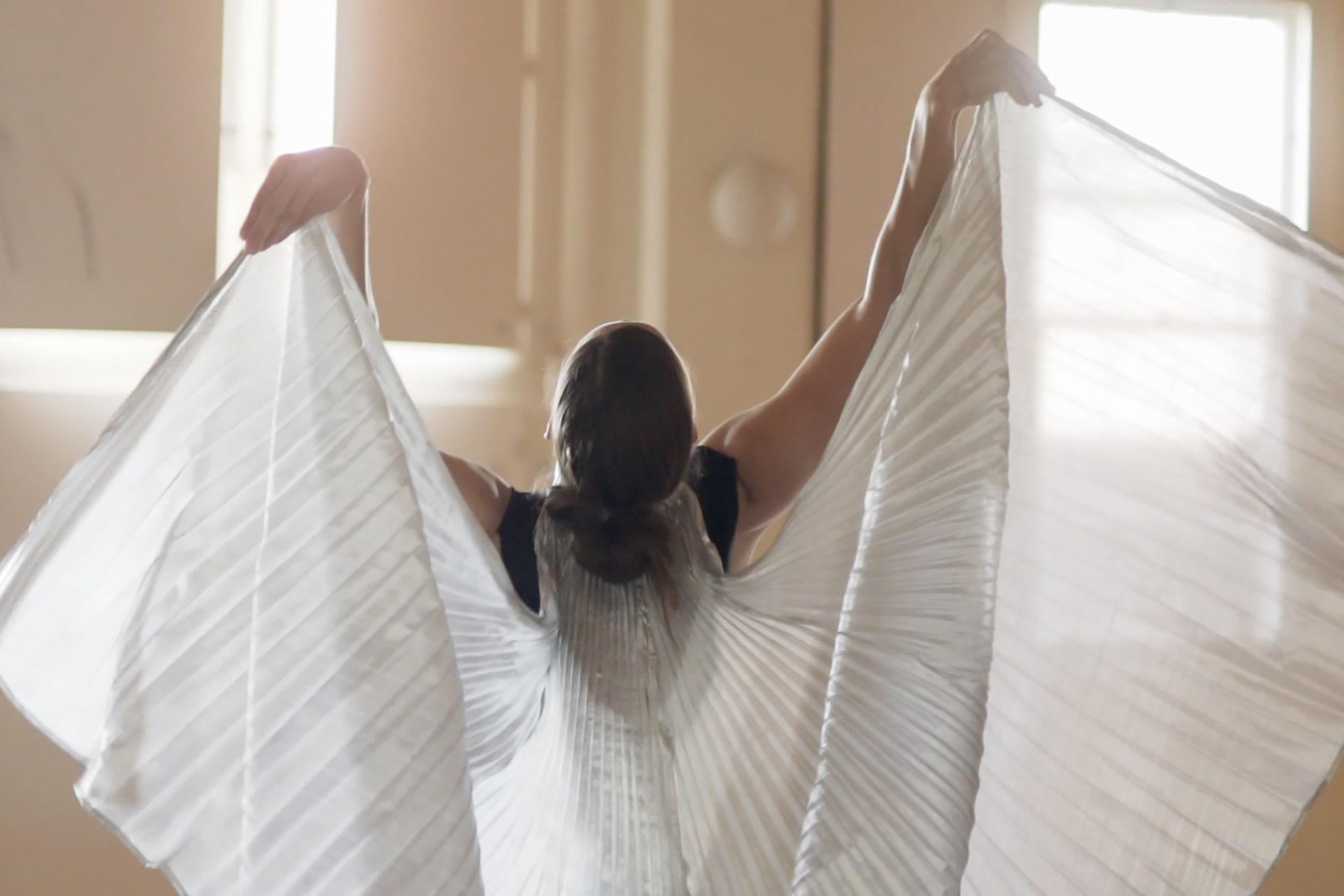WAO Ghost Spotlight with Sam Roberts-Smith
The studio is alive with the enchanting vigour of Mozart’s music and now is our chance to journey beyond the notes. From difficult decisions to thrilling triumphs, we want to shine a spotlight on our creatives working resiliently to bring the magic of opera to you. Connect with your state opera company on an intimate level and understand the agility, growth and energy required to pull a production together against hardship.
This week, hear from baritone Sam Roberts-Smith on his connection to the role of Guglielmo in Così fan tutte, the future of performance in a post-pandemic world, and using opera as a paradigm to reflect on our own lives.
1. Preparations for Così fan tutte are now in full swing. How has the rehearsal process changed due to COVID-19?
Firstly, I think it’s important to state how extremely lucky we are to have the opportunity to actually perform Così at all! WAO management have had to make some extraordinarily difficult decisions in order for us to continue. One such decision was to recast the production with local artists rather than flying in people from interstate. Due to such uncertainty and risks concerning the transmission of COVID-19, using solely WA-based artists has mitigated many potential issues. At a time when performers around the world are struggling to retain each and every contract, I am extremely grateful to be involved in this production, as are all my Così colleagues.
Another first for me is communicating with our director via video calls and email. We are very lucky to have a wonderful Assistant Director in Margrete Helgeby Chaney; however our Revival Director Bruno Ravella is currently communicating with us from London, England. We are only in our second week of rehearsal at the moment, but things seem to be going extremely well. I feel this technologically advanced method of working may be an entrée into how productions may be run in a post-COVID world. We are lucky to have such a talented and innovative team at WAO able to reorganise and respond to the current global crisis.
2. Tell us about your character Guglielmo – will you flesh out a backstory for him from between the lines of the lyrics? What emotions are you drawing on?
Many people don’t know this but Così fan tutte was the first opera I performed after leaving the West Australian Academy of Performing Arts (WAAPA) in 2005. I did eventually return to WAAPA to finish my music degree but spent a few years in Sydney studying at the Sydney Conservatorium. During this time, I was offered the role of Guglielmo in a modern production of Così for Pacific Opera. It would be my first ever outing in the role. The whole experience was such a long time ago I can’t remember exactly what happened, however I do recall tennis rackets, rugby jerseys, paparazzi and a giant 2-storey picture of my face. It was a bit strange, but I had a great time and loved playing the part.
I feel my current version and approach to Guglielmo has evolved as I have changed in tandem. Growing and developing as a person over time will of course colour how I view Guglielmo and the decisions he has to make. At this early stage of rehearsal, I am allowing myself to find new and interesting choices for the character while remaining true to the underlying story. Guglielmo goes on a bit of a rollercoaster journey. I want to portray that accurately while drawing on the many experiences that have shaped and influenced my life.
3. Ahead of opening night, what are you most looking forward to?
Opening night is always a mixture of excitement and nerves. I think people forget, or perhaps aren’t aware, that a show can sometimes be years in the making. The selection and sourcing of a production. The many decisions that need to be made in terms of casting, finances, costuming and chorus member selection. Board and executive meetings, set and lighting design – the list is endless. Prior to rehearsal each artist spends countless hours over months, sometimes years, preparing the show material. Learning and memorising a 3-hour opera is no easy feat, especially if you do not speak the language fluently. Each artist organises language and vocal coaching in order to ensure performance quality and proficiency. This all occurs before rehearsals even begin!
With that in mind, opening night brings with it a sense of relief. So much work from so many people, over such a long period of time. It is exciting, thrilling even, to finally get to opening night. By that stage it is time to let go and ride the wave of preparation which has led to that point. In terms of this particular Così and in the context of the COVID-19 world we find ourselves in, I am simply looking forward to making music on stage again. We are so very lucky to have that opportunity here in WA. It will be a show and opening night to remember.
4. What messages, questions or sensations do you hope audiences are left with after the curtain falls?
As the curtain falls, I hope the audience feels a sense of journey, that they have explored a new, unique world with us. Isn’t that the point? Isn’t the goal to transport the audience to another time, another place, to present a fun and entertaining story? I want the audience to be happy. I want them to enjoy the incredibly beautiful music of Mozart, to be swept away by the magnificent production and costumes. As the curtain falls, I hope they’re reminded why live music and performance is important, of the feelings and emotions it can inspire. As artists, we perform for the pleasure of the audience. We perform for those who love the art form, those who have never been to the opera before, those who love music or simply want an escape. If we can bring joy to people’s lives, inspire young musicians and artists, bring comfort and joy, pose questions and challenge ideas, we have fulfilled our goal.
5. To what extent do you think opera can reflect the challenges and triumphs of our current existence?
I believe we are all, as a global community, facing one of the worst periods the world has ever seen. I am not sure we are through the worst of it either. It is easy to become depressed watching the nightly news and seeing the many destructive forces and tragedies occurring each day. Riots and abhorrent racial inequality, the continuing spread and devastating impact of COVID-19, Californian bush fires, right-wing militia groups parading streets with automatic weapons, multiple countries on the brink of financial and social collapse. Of course, the world has seen its fair share of catastrophic periods before, including world wars, famines, plagues, and natural disasters, but we have never been as connected or reliant upon one another as we are now. The lack of a satisfactory global response to COVID-19 demonstrates the fragility of our planet and our unfortunate dependable interconnectedness. The world faces an almost insurmountable challenge – the key word being ‘almost’.
It may seem unusual however opera can help illuminate the best of us as humans and provide a paradigm to reflect upon our current situation. Opera as an art form has faced hundreds of years of agonising survival against the odds. The characters within great opera stories are constantly tested, challenged, and forced to overcome trials and tribulations. Tragedy often strikes but the human spirit remains defiant. We too are at a crossroad in human history and we too can work together to overcome it.
6. Can you share with us a musical moment in your life that you found to be illuminating or inspiring?
In 2017 I won the Opera Foundation for Young Australians Deutsche Oper Berlin Award. This opportunity saw me relocate to Germany and work as a member of the principal ensemble at the Deutsche Oper Berlin, one of the greatest opera houses in the world. It was a thrilling experience. My first role for the company was opposite Leo Nucci in La Traviata. Leo Nucci is a very famous Italian, golden age baritone. One of the all-time greats. It was thrilling to see and hear him in person from only a few steps away. I remember standing in the wings listening to the Deutsche Oper orchestra fill the space with Verdi’s breathtaking music. I stood there allowing the sound to wash over me while simultaneously watching Leo Nucci wait patiently on the other side of the stage. I remember actively telling myself to enjoy the moment, to savour the experience. It was an incredible night and a surreal moment I will never forget.
7. What other exciting projects do you have on the horizon?
Like everyone else during this global pandemic, I have been looking at a whole range of different projects and avenues. COVID-19 has been and remains especially horrific for the entire arts sector. As an opera singer and performer, much of my time has been spent travelling around the world from contract to contract. This is no longer possible and may remain so for the foreseeable future. Most arts companies, theatres, and live performance artists are barely surviving. I am lucky and grateful to have had other areas to focus my attention on away from performing. I am extremely proud to have recently graduated with a Master of Human Resource Management from Edith Cowan University. Completing further studies in a completely different field has kept me busy for the last few years in addition to my heavy performance schedule. I am optimistic about the future and believe it is always important to stay proactive, create new opportunities and think outside the box. It is undeniable COVID-19 has been devastating for all of us, however we must keep moving forward, keep re-evaluating what is important, and hopefully create new fulfilling lives in a post-pandemic world. For now though, I will be enjoying every moment of Così and can’t wait to bring this beautiful production to the stage.
Sam Roberts-Smith stars as Guglielmo in Mozart’s Così fan tutte this month. To find out more about this stunning production please click here.
ABOUT SAM ROBERTS-SMITH
Sam Roberts-Smith is a graduate of the Western Australian Academy of Performing Arts and is already recognised as one of the most exciting young baritones on the international operatic scene.
A multiple award winner, Sam has enjoyed domestic and international success on the competition circuit both representing Australia and receiving prizes at several prestigious competitions including the Paris Opera Awards, Australian Singing Competition and the International Hans Gabor Belvedere Singing Competition. Sam is a former member of the Deutsche Oper Berlin principal ensemble, WAO Mentored Artist Program, Opera Australia Young Artist Program, The TEN Tenors and Opera Australia’s principal ensemble. Even at this stage of his career Sam has collaborated with some of the biggest names in the operatic world including Leo Nucci, Patricia Racette, Sir Simon Keenlyside, Stephen Costello, Charles Castronovo, Zeljko Lucic, Anja Harteros, Donald Runnicles and Richard Bonynge.
In 2020 Sam completed a Master's degree in Human Resource Management from Edith Cowan University.


